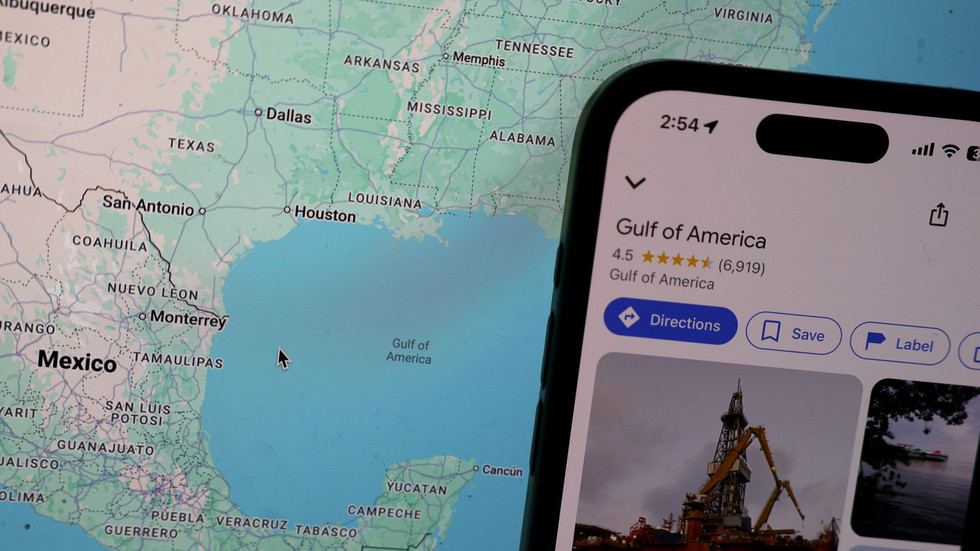Understanding Gulf of Mexico’s New Identity: What Google’s Name Change Means
Google’s recent decision to rename the Gulf of Mexico has stirred a pot of discussions about the intersection of technology, geography, and cultural identity. This change, though seemingly simple, raises profound questions about the influence of major corporations like Google on public perception and the cultural significance of geographic locations. As we unpack this phenomenon, it’s essential to explore the implications of such a transformation and how it affects our understanding of regional identities.
The Context Behind the Name Change
The Gulf of Mexico, a significant body of water bordered by the United States, Mexico, and Cuba, has long been recognized for its ecological diversity, economic importance, and cultural heritage. Google’s initiative to rename this geographical entity appears to stem from a broader vision of enhancing the accessibility of geographic information through its platforms. By rebranding the Gulf, Google aims to streamline user interactions with maps and search functions, making it easier for users to engage with this vital region.
But what does this mean for the identity of the Gulf of Mexico? Geographic names carry weight; they evoke specific cultural, historical, and emotional connections. The renaming process, therefore, is not merely a logistical change but a reconfiguration of how we perceive a location. The Gulf of Mexico’s new identity could alter the way residents and visitors alike relate to this storied body of water.
The Power of Technology in Shaping Geographic Identities
In today’s digital age, technology plays an omnipresent role in shaping our understanding of the world. Geographic Information Systems (GIS), mapping software, and social media platforms have transformed how we interact with places. Google, being a frontrunner in digital mapping and information dissemination, wields considerable influence over public perception.
- Visual Representation: Google Maps and other platforms provide visual context, which can reshape how people see and understand the Gulf of Mexico.
- Search Optimization: The renaming could affect search results, leading to a shift in knowledge and awareness about the region, often favoring commercial interests.
- Cultural Narratives: A name can carry cultural weight. Changing it can redefine local narratives, impacting how stories and histories are told.
This shift in identity through technological means highlights a crucial point: geographic names are not just labels; they are embedded in the cultural consciousness of the people who inhabit those spaces. As Google continues to influence how geographic names are perceived, the implications may extend beyond mere semantics.
Implications for Local Communities
The renaming of the Gulf of Mexico raises important considerations for local communities. For the residents and stakeholders who call this region home, a name change can feel like an erasure of history and identity. Communities often rely on geographic names to signify belonging and heritage. Here’s how these changes might impact them:
- Loss of Historical Context: Local histories are tied to geographic names. A change might dilute the historical narratives that shape community identity.
- Economic Factors: The Gulf is a vital economic zone for fishing, tourism, and oil production. A name change could impact branding and marketing strategies.
- Environmental Concerns: As discussions around climate change and conservation grow, the name change could influence how ecological issues are perceived and addressed.
Local communities may find themselves grappling with these changes, striving to maintain their cultural significance in a rapidly evolving digital landscape driven by corporate interests.
The Role of Corporations in Geographic Identity
Corporations like Google play a pivotal role in shaping geographic identities, but this influence is a double-edged sword. While their platforms provide extensive resources and visibility, they also risk commodifying places, reducing rich histories to mere data points. The Gulf of Mexico’s new identity could potentially serve corporate interests over local narratives.
Furthermore, this raises ethical questions about the responsibility of corporations in preserving cultural identities. Should tech giants take a more active role in consulting local communities before implementing changes that affect their geographic identities? The dialogue surrounding these issues can help ensure that the voices of local stakeholders are heard and respected.
The Future of Geographic Names and Cultural Identity
As we look toward the future, the renaming of the Gulf of Mexico serves as a case study in the evolving relationship between technology and geography. This incident prompts a larger discussion about how geographic names can be preserved or transformed in a digital age. Here are some key considerations moving forward:
- Community Engagement: Involving local communities in discussions about geographic names can foster a sense of ownership and respect for cultural heritage.
- Balancing Interests: Finding a balance between technological advancement and cultural preservation is essential. Corporations should consider the long-term impacts of their decisions.
- Education and Awareness: Raising awareness about the significance of geographic names can empower communities to advocate for their interests and heritage.
As the dialogue continues, it’s vital to recognize that the Gulf of Mexico is more than just a name; it’s a living entity rich in history, culture, and community. The implications of Google’s name change extend far beyond a simple rebranding; they highlight the need for a careful examination of how technology shapes our collective understanding of geographic identities.
Conclusion
The Gulf of Mexico’s new identity, instigated by Google’s name change, serves as a pivotal moment in our understanding of the nexus between technology and geography. As we navigate this changing landscape, it becomes increasingly important to consider the cultural, historical, and emotional implications of such transformations. By fostering dialogue, promoting community involvement, and balancing technological advancements with respect for local identities, we can ensure that our geographic names continue to reflect the rich tapestry of human experience.
See more Future Tech Daily

